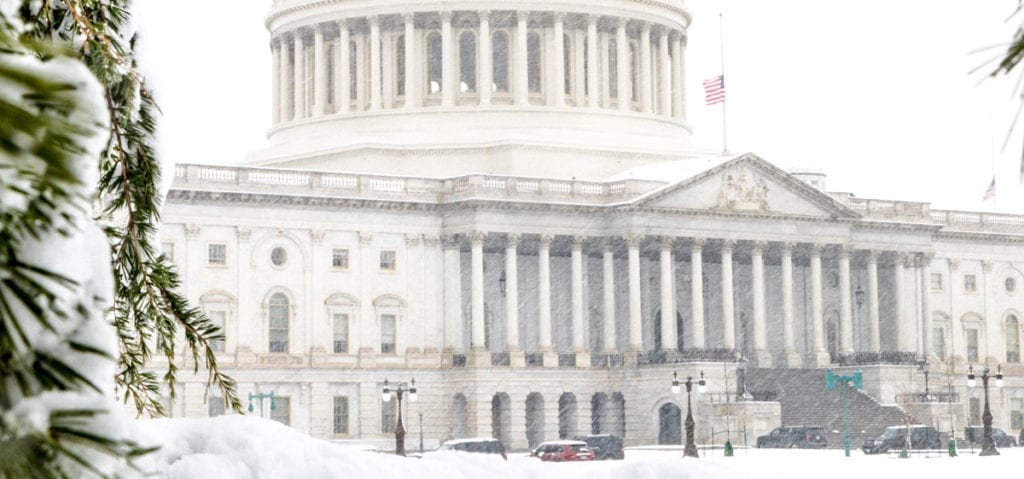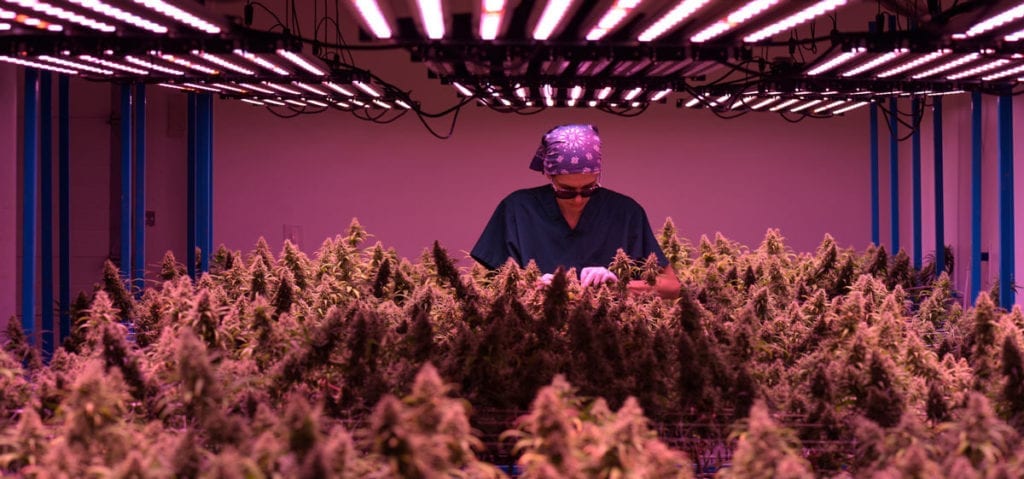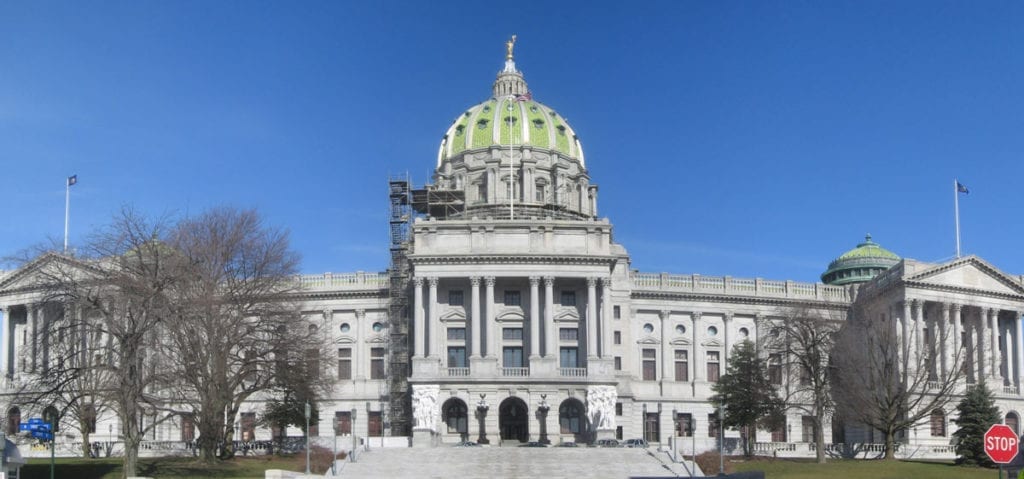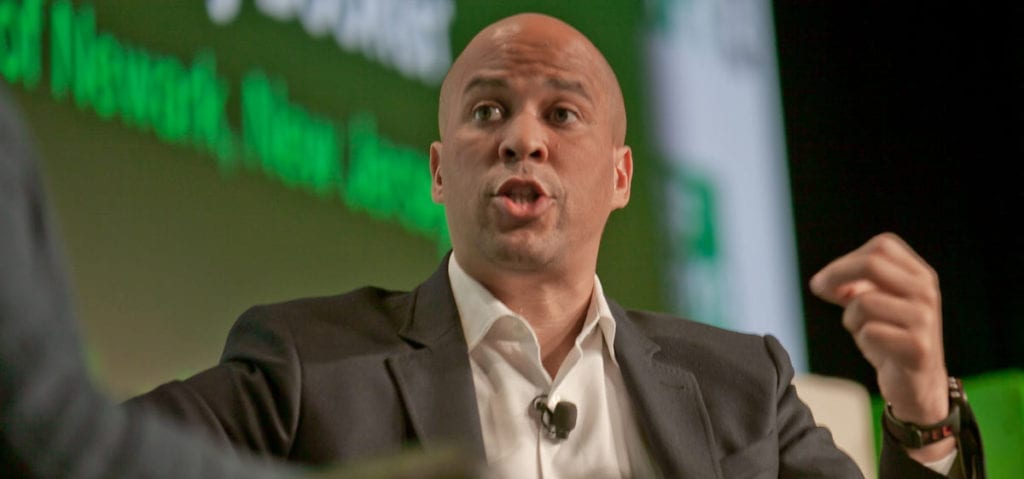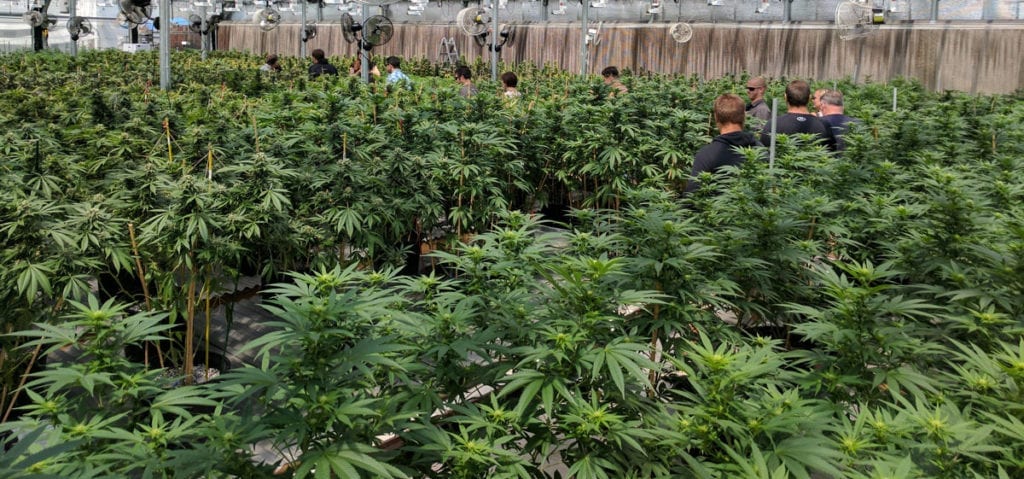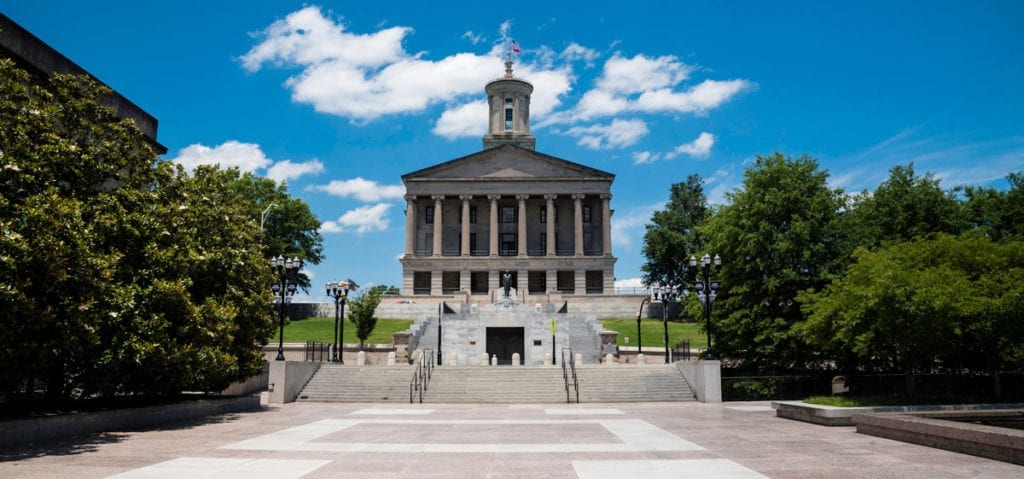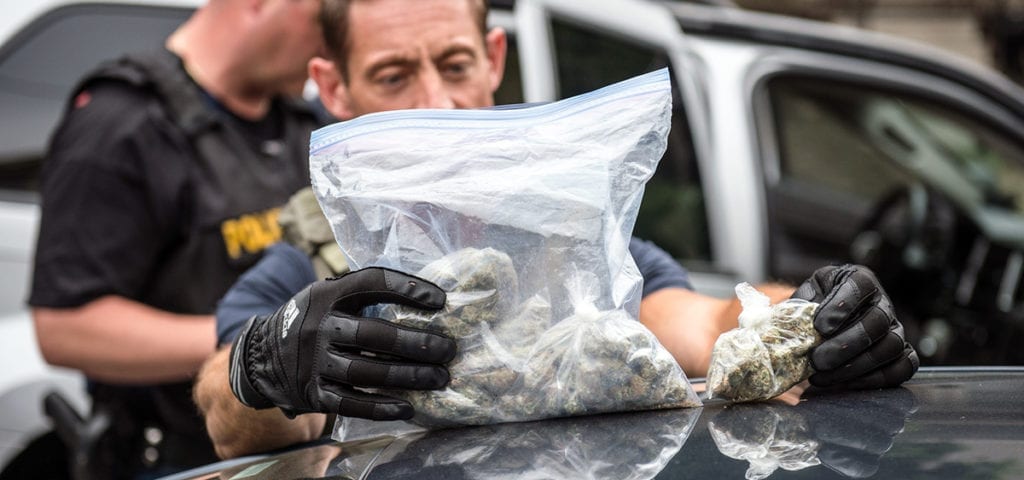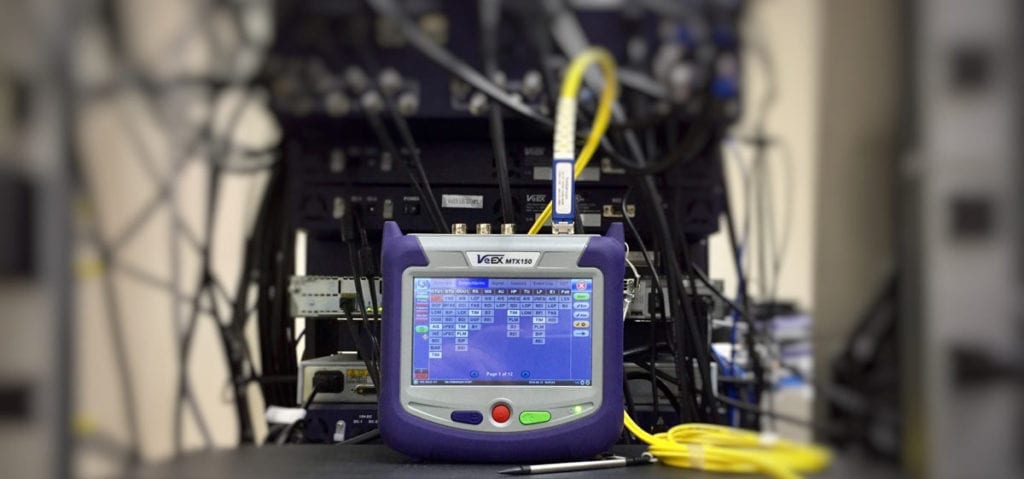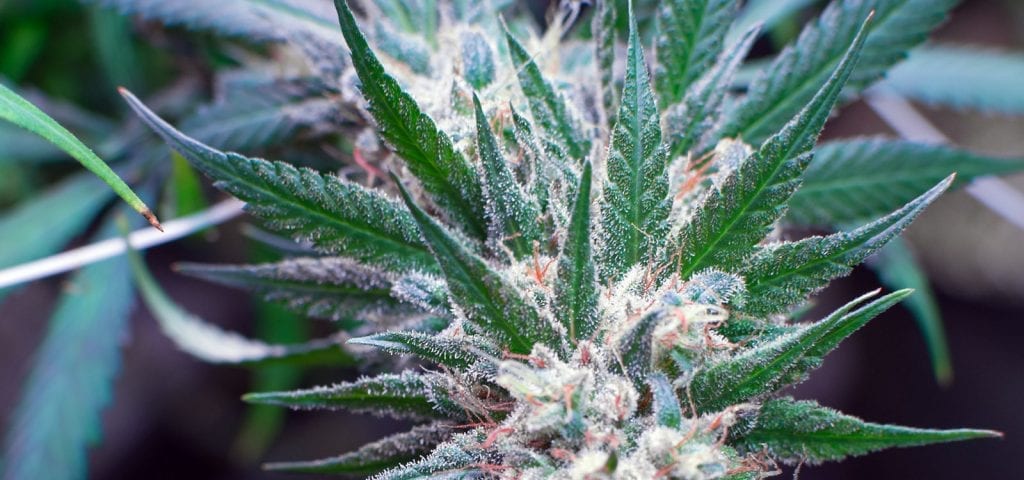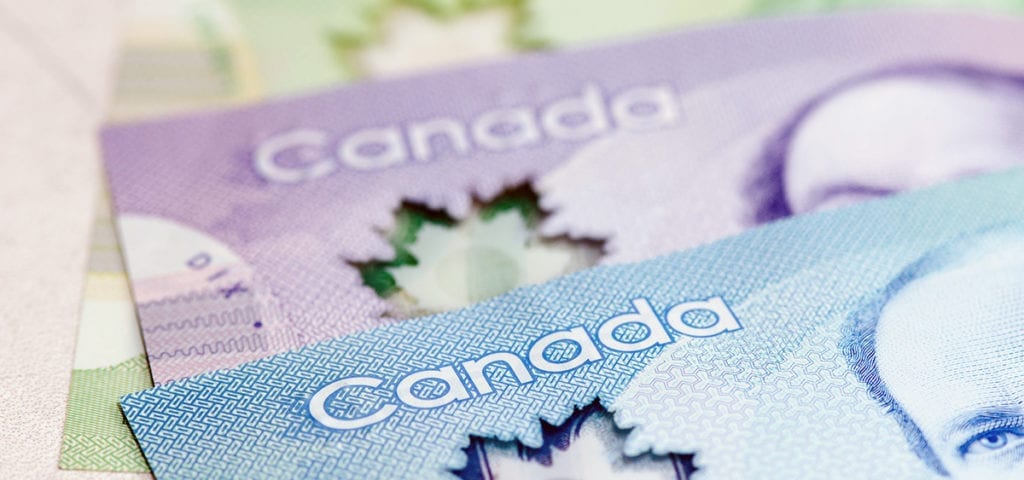This podcast is produced by Ganjapreneur, your source for cannabis industry news and insights.
Liz recently joined our podcast host TG Branfalt to discuss her strategies for recruiting mid-level to executive leadership candidates for the cannabis space. This interview covers Liz’s recruitment strategy — which relies on long-term, trust-building partnerships between herself, clients, and candidates — as well as her liberating transition as an executive recruiter for other highly regulated industries to launching her own firm with a specific goal of working with cannabis companies. According to Liz, the best cannabis candidates should bring a passion for the plant, perseverance in their work despite regulatory challenges, and an eagerness to make some sacrifices for an opportunity to help shape the nascent cannabis industry.
You can learn more by listening to the interview via the player below, or scroll further down to read a full transcript of this podcast episode!
Listen to the podcast:
Read the transcript:
Commercial: At Ganjapreneur, we have heard from dozens of cannabis business owners who have encountered the issue of cannabias, which is when a mainstream business, whether a landlord, bank, or some other provider of vital business services, refuses to do business with them simply because of their association with cannabis. We have even heard stories of businesses being unable to provide health and life insurance for their employees because the insurance providers were too afraid to work with them. We believe that this fear is totally unreasonable, and that cannabis business owners deserve access to the same services and resources that other businesses are afforded, that they should be able to hire consultation to help the follow the letter of the law in their business endeavors, and that they should be able to provide employee benefits without needing to compromise on the quality of coverage they can offer.
This is why we created the Ganjapreneur.com business service directory, a resource for cannabis professionals to find and connect with service providers who are cannabis-friendly and who are actively seeking cannabis industry clients. If you are considering hiring a business consultant, lawyer, accountant, web designer, or any other ancillary service for your business, go to Ganjapreneur.com/businesses to browse hundreds of agencies, firms, and organizations who support cannabis legalization and who want to help you grow your business. With so many options to choose from in each service category, you will be able to browse company profiles and do research on multiple companies in advance, so you can find the provider who is the best fit for your particular need.
Our business service directory is intended to be a useful and well-maintained resource, which is why we individually vet each listing that is submitted. If you are a business service provider who wants to work with cannabis clients, you may be a good fit for our service directory. Go to Ganjapreneur.com/businesses to create your profile and start connecting with cannabis entrepreneurs today.
TG Branfalt: Hi, there. I’m your host, TG Branfalt, and you are listening to the Ganjapreneur.com podcast, where we try to bring you actual information and normalize cannabis through the stories of Ganjapreneurs, activists, and industry stakeholders. Today, I’m joined by Liz Gehl. She’s the owner of Gehl Search Partners, a talent recruitment firm specializing in finding qualified personnel for highly regulated industries with a focus on positions in sales, marketing, strategy, and planning, compliance, finance, accounting, and administrative roles. She does a whole lot. How are you doing this afternoon, Liz?
Liz Gehl: Hi, TG. Doing well. How are you?
TG Branfalt: I’m doing great. I’m doing great. I’m excited to talk to you. As I was mentioning before we hit the play button, this is something that I’m really far removed of, but it’s really exciting for me to get to talk about this and to get into some of the details, but before we get into the details of what you do with Gehl Search Partners, tell me about you. What’s your background, and how did you end up in the cannabis space?
Liz Gehl: Sure. I’ve been working in human resources and recruiting for my entire career, in many facets, while concurrently being a medicinal and recreational cannabis user. So up until beginning Gehl Search Partners, at times it felt like I was living a double life. I had such a passion and belief in the benefits of cannabis. It was heartbreaking in my professional life to have to rescind job offers or turn talented people away given their cannabis use. So with my background in HR and recruiting for the adult beverage industry, I saw an obvious correlation between cannabis and alcohol in terms of the regulatory side of the business, and getting this product out to the masses in a responsible way, utilizing that three-tier system that we already have in the alcohol industry.
Given my background and passion for the alcohol industry as well as the cannabis industry, it was a natural progression for me to focus my firm on the two industries and hopefully be able to show individuals and companies out there that the two industries can continue to collaborate and co-exist.
TG Branfalt: What do you guys do over there? Tell me about the process for people who might not be familiar with what recruiters actually do.
Liz Gehl: Sure. We provide high-caliber mid-level to C-level talent, primarily within sales, marketing, compliance, strategy and planning, finance and accounting roles. And we really don’t take the methodology of posting and praying. We’ll post jobs from time to time, but quite honestly, 90% of what we’re working on, we don’t post. We go through our network of individuals that we have relationships with. We’re firm believers in having strong relationships, not only with our candidates, but our clients, as well.
With the 15 plus years of experience that I’ve personally had in recruiting, I have candidates that I’ve placed two or three times throughout their career because they trust me, and they trust that when I bring them an opportunity, it’s for the right reasons. It’s not just simply a monetary increase. It’s something that’s going to progress their career or give them something else that they’ve been looking for in terms of their next step in their career. And from the client side, we really get to know both what they’re looking for in current state, as well as their future goals. Obviously, we’re looking for long-term commitments from candidates when they’re placed at our clients’ companies.
So in order to have that happen successfully, we need to learn as much as we can, not only about what the goals are today, but what you’re going to be doing two years from now, three years from now, so we can keep those candidates engaged and actively excited about the opportunities, and finding how those relationships can really collaborate and work well together, not only in skillset, but also personality. Those things that aren’t listed on a job description that are so important to realize, you know, if people are going to get along, want to have a beer with each other outside of work. All those things are really important and make people want to get up and go to work every day.
TG Branfalt: You had mentioned trust, and I think that that’s sort of very interesting that you bring that up. How do you build that trust in such a nascent industry?
Liz Gehl: What I’ve found is being somebody who understands the plant and understands the benefits … And I’m a user. I’m not somebody who’s coming in at the eleventh hour into the industry and saying, “Hey, I want to be a part of this.” I’ve been a part of the industry for many years, just underground. As a human resource professional, I had to be very, very careful because I am very, very passionate about the benefits of cannabis, but I couldn’t say that out loud when I worked in human resources, and I was giving people drug tests.
It’s been that type of transparency and being very, very open with both clients and candidates, and saying, “Hey, you’re not going to like everything that I tell you about this client or about this candidate, but when your relationship starts and everything works out and they’re hired on that first day, both parties know what to expect.” And I know that’s a very different approach than a lot of other recruitment companies take, but given the fact that we’re looking for long-term placements, I’m a firm believer in it’s a relationship. We all want to go into any relationship with eyes wide open and knowing what to expect as much as we possibly can.
Everybody has faults, whether you’re a company or whether you’re a candidate, so rather than focus on the faults, let’s look at them as opportunities, and how we can bring them into the conversation and really focus on the positive aspects of both the company and the candidate, and then work through those areas of opportunity together so that we can have a successful outcome.
TG Branfalt: What was the transition like for you, going in? You have this HR background. You’re also obviously very passionate about cannabis. Can you sort of describe to me that transition from the suit-and-tie real world, I guess, to the cannabis industry, which while it’s still, obviously, a serious business, the culture‘s a little bit different, I reckon?
Liz Gehl: Well, you know, it was interesting, because I knew I was going out on my own to open up my own recruitment firm and had given several months’ notice to my employer, and at no fault of their own, there was a situation where we had hired somebody very, very talented, and the person knew that they were going to go in for a drug screen, and reached out, and said, you know, “I don’t want to waste your time. I just want to let you know I’m a medicinal cannabis user. I have insomnia, and I don’t believe in taking Ambien. I would rather take an edible before I go to bed, but I can guarantee you I’ll never be under the influence at work.” And said all the right things and shared information that they didn’t need to share, healthwise.
And when I went to legal counsel, they were adamant. We have a zero-tolerance policy. Doesn’t matter. We can’t have it. We’re a highly regulated industry. Sorry. We’re rescinding the job offer. Now, I’d had that happen several times throughout my career, but knowing that … Well, having a strong feeling that recreational legalization was coming very, very quickly to California, I just had this sinking feeling in my gut and couldn’t do it anymore. And I’ll never forget sitting in that meeting and thinking to myself, “Not only am I absolutely going out on my own to start my recruitment firm, but I need to make sure that people understand that very professional, successful individuals use cannabis.” I’m one of them. And instead of hiding, I’m going to start being very vocal about the fact that it’s an industry, just like anything else, and of course there is some pain points, but there was with alcohol, pre-Prohibition, as well, and we got through that, and we got through that with some very talented people.
So it’s more, again, just about the passion for recruiting and human resources, the passion for the cannabis industry, and really knowing that there’s more individuals like me, like people in my personal circle that I’ve had for 20 years that smoke cannabis and vape cannabis with me, that you can be successful and can be very driven and be a cannabis user, and you shouldn’t be judged for that. So that’s really what drove me to start Gehl Search Partners as a cannabis recruitment firm, along with the adult beverage side.
And the transition wasn’t easy. The first 10 months or so, a lot of alcohol companies actually told me they didn’t want to work with me because of my belief in association with the cannabis industry. Fast forward to now, and as we all know, there are a lot of alcohol companies that have now made the transition and are starting to make acquisitions and mergers and investments and all of a sudden, people want to hear what I have to say, which is great. But that was definitely a tough road. Those clients, some of them have come back around. Others haven’t, and that’s okay. I completely understand that, but it definitely was a tough road.
TG Branfalt: How much of what you do now has become sort of this, I don’t know … Advocate for normalization, if you will? It seems like you’ve done a lot of heavy lifting in terms of sort of ringing that normalization bell.
Liz Gehl: You know, I don’t mean to, but when I’m passionate about something, I just, I speak about it. I’m a very, very transparent person. I speak my mind, and I think that helps, right? With the trust side, too, to go back to your question prior. When somebody tells you exactly how they feel all the time, it’s probably easier to trust them because you always know what you’re going to get, and it’s the truth. Even in my human resources days, I say I wouldn’t speak up, but I did. Right? I would say, “Okay, guys. Let’s stop and think about this. We’re sending people home with half-open bottles of alcohol, but we can’t have them have a medicinal card so they can pour wine.” But I was one person in a huge company that’s highly regulated.
So again, I don’t fault that company or any others like them, but my hope is that with more education and more people like me and people coming out of other industries who have this strong interest in going to the cannabis industry, all of us together can really help change that stigma.
TG Branfalt: This is really fascinating stuff. I do want to switch gears a little bit and talk to you about what you look for. What qualities and qualifications do you look for in executive talent, and how have you adapted that eye for the cannabis space?
Liz Gehl: Sure. What I’ve found to be most successful for both the client and the candidate is when the candidate has a passion or a belief in the plant. You don’t necessarily have to be a consumer, but my joke is … It’s not really a joke. To every candidate who always says to me, “I’m not a consumer,” my response to them is, “Not yet.”
And the reason why I say that, obviously I’m very passionate, but the reason why I say that is people don’t understand that you don’t have to get high. You can use a salve. You can use a topical. There are so many things that can happen with this plant that are going to alleviate pain or whatever they’re going to do for you. I truly believe that you’re not yet. You’re not yet. You haven’t found whatever it is that’s your, the magic thing for you, so to speak. Finding people that are open-minded enough when I say things like that, they laugh, and say, “Yeah, you’re probably right,” versus “No, I will never.” If you’re not flexible, the cannabis industry probably isn’t for you because things change every day, and they’ll continue to change for quite a while as things continue to get fleshed out.
Belief in the plant in one form or another. Maybe they’ve had a family member who benefited from it. Maybe they’re passionate about what it can do for children when they’re having seizures. Whatever that is, that’s very important. Also, resilience, being able to pick yourself up and brush yourself off after coming across a challenge. As we all know, there’s consistent challenges in the cannabis industry, whether it’s at the state level or federally. There’s always going to be something. In the next couple of years at least, that’s going to be a challenge. So how have you taken on challenges in the past? Have you risen to the occasion or have you been pretty discouraged and given up?
And also, just on a cultural level, if there’s somebody who is looking for an incredible amount of structure, that’s also something that is a long conversation that we have with them. Not that there isn’t structure in the cannabis industry, but again, going back to things that are constantly changing. Structure changes when things are constantly evolving and changing, as well. So it’s great to have structure, but can you pivot on a dime and still produce results and still be a nice human being and still treat people with respect, rather than getting upset and impatient. And that’s kind of some of the core things we look for, but again, it really depends on the role itself.
And because we focus on mid-levels all the way up to the C-level talent, there’s also that professional acumen. And again, with the cannabis industry, that’s a professional acumen, but it’s also being able to break bread with people and understand that the cannabis culture is one that isn’t quick to trust. They want to make sure that you’re a genuine person, that you are who you say you are, that you’re not somebody coming into the industry right at this moment, hoping to make big bucks, right? Because many people haven’t made a ton of money in the industry. They’ve been doing it to help people. So those are some of the primary things we look for.
TG Branfalt: From which sector are you seeing the most demand? Is it sales? Is it finance? Who’s looking for what sort of the most right now?
Liz Gehl: Sales is definitely the area where we see the most growth and the most business and the most revenue generated. Right? I mean, if you have talented sales people, then obviously revenue and market share is going to increase. So many cannabis companies are not branded extremely well, so those relationships are still incredibly important, even though we’re recreational now. Those individuals that have relationships at dispensaries, or if they don’t, they know how to creatively go after them. Or looking into the CBD area, candidates who have called on health and wellness or C-stores, convenience stores. Those type of things are really attractive a lot of times in the cannabis space because of the distribution and logistics and so forth.
So sales is really kind of the hot area for our particular recruitment firm, and from the other side, the thing that’s really interesting, too, which I see as a great thing is I’ve talked a lot in other areas about the fact that the cannabis industry needs better branding. Very few times do we have a screaming product with screaming branding. We usually have one or the other. Or they’ll throw a celebrity on their licensing agreement, and that’s supposed to work magic. And sometimes it does. Right? But marketing is an area where, in my opinion, the cannabis industry really, really has a lot of room to grow, and so where I get excited is I can’t tell you the number of incredibly talented marketing people we have coming out of adult bev, pharma, tobacco, health care, that are just chomping at the bit to get into the cannabis industry.
And I think that’s fantastic because the cannabis industry is right on that trajectory of being ready and having the revenue to be able to do so. But I think it’s just a natural progression, right? Sales is what companies typically want to start with, and then go into marketing. My personal opinion, you need both. It’s hard to have good sales if your marketing isn’t great, but understanding that they need to build revenue and helping support clients and finding those candidates who have either backgrounds in cannabis already and have the relationships or are coming from another industry and are bringing in a skillset that’s going to be very fruitful for this particular client.
TG Branfalt: You mention how important sales and marketing are. Is there any sector that’s particularly overlooked when people start building their teams?
Liz Gehl: I think, you know, I’m not saying anything new here, but compliance. Compliance across the board is obviously incredibly important, but it’s not just in the manufacturing and the distribution. It also needs to carry over into the human resources side. Most of these companies are too small and don’t need a full-time human resources person. I see that, right? If you have under 15 employees, it really doesn’t make sense to have somebody full-time on payroll for HR. But having a compliance person who has that kind of lens, who’s looking at compliance across the entire organization, including human resources and hiring practices, and how you treat your employees, I think is overlooked, and I advise my clients many, many times. We help with hiring, and that sort of thing, but in terms of employment law, there needs to be a lot more attention paid to that, in my opinion.
TG Branfalt: Is it challenging for you and for firms, for companies, to find talented individuals that can wear these multiple hats? You’ve mentioned people who were in sales should also know a bit of marketing, and people who are in compliance should also know a bit of HR. Is this something that you see very frequently, and is it a challenge to find these individuals?
Liz Gehl: It is. Because so many people, it’s just a natural progression. You go down a career path, and you start doing well, and so, especially if you’ve worked with larger companies. Larger companies tend to put you on a path where you’re continuing to learn the same thing, just more senior level aspects of that particular role. People that have had multiple careers are a good fit in the cannabis industry because they can wear many hats. That’s where a lot of candidates are actually attracted to the cannabis industry is, where other companies are telling them, “Hey, I don’t know what your background is because you’ve done a little bit of everything, so I don’t know where to put you,” the cannabis companies are saying, “Heck, yes. That’s amazing. You’ve done a little bit of everything, and we need everything, so come on over.” Right?
So it’s really been nice to see in my career as a recruiter, so many times I had to turn people away because they had a varied background. Now I can reach out to them and say, “Hey, guess what? We have companies that are celebrating the fact that you have a varied background.”
TG Branfalt: You talk about varied background … And do you get a lot of sort of non-traditional people to fill these roles? You know, because so much of this industry for so long was illicit … I’m not saying, you know, do you get a bunch of felons and that sort of thing knocking on your door, but do you get people from sort of more non-traditional backgrounds to fill these roles because of what they did maybe when the market wasn’t so legal?
Liz Gehl: It’s interesting. We have candidates across the board who’ve been lifers in the industry to people who have never had any experience with cannabis, right? So our candidates run the entire gamut, but in terms of where we’re most successful and where our sweet spot tends to be is, a lot of times, companies are looking to my firm to bring in talent who can bring in some of that corporate experience, or bring in some really screaming consumer packaged goods training. There are a lot of consumer packaged goods and adult beverage companies out there that have world-renowned training, and now, these cannabis companies are able to attract that talent.
I’ve heard this several times. “Liz, we’ll teach them cannabis. We want them to teach us how to run a CPG company.” And I think that’s amazing, right? To really be able to look at cannabis as a consumer packaged good. It is. Right? It is. And to really bring it more to that consumer-facing forefront, in order to do that, a lot of companies see the need to bring in people that have done the same thing, whether it’s with alcohol or with toothpaste or with pharmaceuticals or whatever it is, cigarettes, right? And that’s typically the most attractive type of candidate because if you’re coming from a highly regulated industry already, most likely you’re not going to get as easily frustrated with the regulatory side of cannabis. You’re going to understand it, and you’re already going to be well-versed in being able to pivot very quickly on creating new ideas and new solutions when a law changes for no good reason and you have to still get product out to the masses.
TG Branfalt: It’s really, really interesting. Are there any common traits among executives that make the switch to the cannabis space?
Liz Gehl: People that are willing to take a calculated risk. We’ve come a long way, just even in the last 6 to 12 months, in terms of compensation packages in the cannabis industry. But banking is still an issue, right? So we don’t have huge compensation packages with 401(k), equity, life insurance. I mean, many companies do, but when you’re coming from pharma or adult bev, you’re going to have to give something up to become an employee in this incredibly exciting industry. So that’s one of the tough conversations we typically have early on, is what are you looking to accomplish in getting into the cannabis industry, to really make sure that we’re, again, making the match for the right reasons.
Once we determine, again, that they’re looking to get into the industry for a passion, a belief in wanting to remove the stigma, to bring the cannabis to the consumer in a different way … That’s really where we start the conversation, start looking at where they might be a match with our clients. Secondarily, after that, it really goes a bit more into their particular skillset, right? Accounting and finance … We have a lot of experience in accounting and finance, as well, and a lot of the regulatory side of accounting and finance is transferable over to cannabis, but there’s a lot of nuances in cannabis that are different.
So a lot of people in accounting and finance are kind of scratching their head and saying, “Okay, this is an interesting problem to have.” And wanting to help figure out how to create solutions, so again, being a solution-oriented person, being open-minded, being flexible, and being passionate about the benefits of cannabis are really the initial things we look for, and then a deeper dive into their actual skillset.
TG Branfalt: You mention risk and sort of explain what that risk is for a lot of folks that you come in contact with, that you’re potentially recruiting. What kinds of questions do people ask about this? This is something that I’m very interested in, and sort of from your perspective, what questions do you get a lot by people who are dipping their toes in considering getting into the cannabis industry? When it comes to this risk specifically?
Liz Gehl: I don’t know about questions, specifically, but the thing I always find really, really interesting is a lot of people will say, “Oh, absolutely. I’m a risk-taker, and I want to get into the industry, and I’m absolutely willing to take a risk, but I’m not going to go back on my compensation, but I want equity.” And that one always cracks me up, because it’s like, well, companies don’t give equity just because. They give equity because you’re taking a risk and you’re one of the first umpteen employees, and you’re helping build the company out.
So I think that’s probably the biggest obstacle and issue is candidates seem to think that this is an easy way to get rich quick, and that every single cannabis company out there is offering equity, and they’re offering equity on top of the consumer packaged goods salary you currently have today, which is just not … It’s not logical, and it’s not realistic. So I think a lot of conversations end after that, when they realize, okay, I’m going to have to take a step back in one form or another on my compensation in order to gain equity, or I may not gain equity, but I’ll have the same compensation package. That’s been the primary risk for them.
And then, it varies, again. Cannabis companies are all over the board now, where many of them can offer benefits, can offer strong bonus programs and things like that. So that’s been significantly better, just in the last 6 months.
TG Branfalt: What advice do you have for these mid-level to C-level executives that are interested in entering the cannabis space that might be listening today?
Liz Gehl: My advice would be that the industry absolutely is hungry for talent and capabilities, but at the same time, there’s an ultimate respect for the individuals who have built these companies, have taken the extreme risk to operate companies in an environment which wasn’t federally legal or isn’t federally legal and many times wasn’t legal at the state level. And they’ve gone through an extreme amount of hard work and financing and raising capital in order to have these companies. So as much as I absolutely love bringing in individuals from outside industries into the cannabis industry, I also want to make sure that those individuals understand that we really do need to pay homage to these people. They’ve put their livelihoods at risk so that the rest of us can have cannabis as a consumer product.
So having that respect early on in the conversations with these individuals. You know, the owners of these companies, the founders of these companies, and really understanding where they’re coming from, in addition to selling yourself and how your past experience and your education is going to be good for their organization, having that respect at the same time. And I think that’s what I hear a lot of times from my clients is sometimes they get turned off from people outside of the industry because people come in as a, this is how things need to be done. And it’s hard to come in that way when you don’t have any professional experience or maybe even any personal experience in the industry.
So again, going back to something I said earlier, having that mutual respect and making sure we can build that trust between client and candidate so that there’s a mutually respectful relationship throughout the entire process. But it starts with us, very early on, with candidates. If candidates are wanting to come in and run the show at a cannabis company, you’ve had no experience in the cannabis industry, that’s going to be a tough sell.
TG Branfalt: And so you’d said that some companies might be a little hesitant about bringing in people outside the space. What advice do you have for companies who are looking for this executive high-level talent?
Liz Gehl: I think they should be more open-minded, and most of them are. But they should be more open-minded to people coming out of this space, out of the industry. There’s kind of an old saying that a lot of recruiters know and share with their hiring managers. You don’t want an entire company or an entire team of people just like you. If you’ve got an entire team, an entire company of people just like you, how are you going to come up with new ideas? How are you going to be innovative? How are you going to have one leg up on the competition? So bringing in people from various industries who are going to be able to think outside the box and maybe come up with some ideas that seem incredibly crazy at the time but are doable … That’s where I’ve seen the most success.
Many times, clients will come to us and say, nope, they absolutely have to come out of this space. And 9 times out of 10, after a few conversations and showing them various candidates, we’re able to get them to understand that, hey, dependent on the individual, people bring different skillsets and different qualities to the role, so it’s really about the individual and their background and what they can provide the company, and what the company can provide them versus them just coming out of one particular sector or industry, is going to prove to be much more successful, at least from what I’ve seen in my 15 years of experience in working with companies throughout retail, CPG, again, you know, pharma, adult bev, and so forth.
TG Branfalt: Well, Liz, this has been a really, really enlightening conversation. I’m really happy that you could take the time to join me on the show, and definitely want to keep in touch with you as this industry grows and just see what trends have sort of emerged from a recruitment standpoint. I really thank you for your time.
Liz Gehl: Absolutely, TG. Thank you, and thank you so much, and happy to keep in touch, and excited, as well, to see how things progress.
TG Branfalt: Yeah, and that was Liz Gehl. Thank you so much, Liz.
You can find more episodes of the Ganjapreneur.com podcast in the podcast section of Ganjapreneur.com and in the Apple iTunes store. On the Ganjapreneur.com website, you will find the latest cannabis news and cannabis jobs updated daily, along with transcripts of this podcast. You can also download the Ganjapreneur.com app in iTunes and Google Play. This episode was engineered by Trim Media House. I’ve been your host, TG Branfalt.

